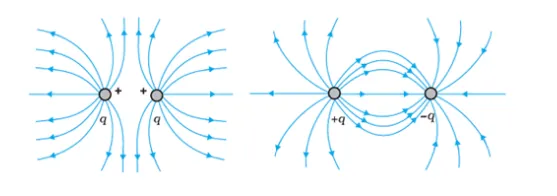Question:
The electric field at a point is
(a) always continuous
(b) continuous if there is no charge at that point
(c) discontinuous only if there is a negative charge at that point
(d) discontinuous if there is a charge at that point
Solution:
As we know, electric field lines emanate from positive charges and terminate on negative charges. Thus, electric field due to the charge Q will be continuous, if there is no charge at that point. It will be discontinuous if there is a charge at that point.
This can be understood with the help of figures shown below

